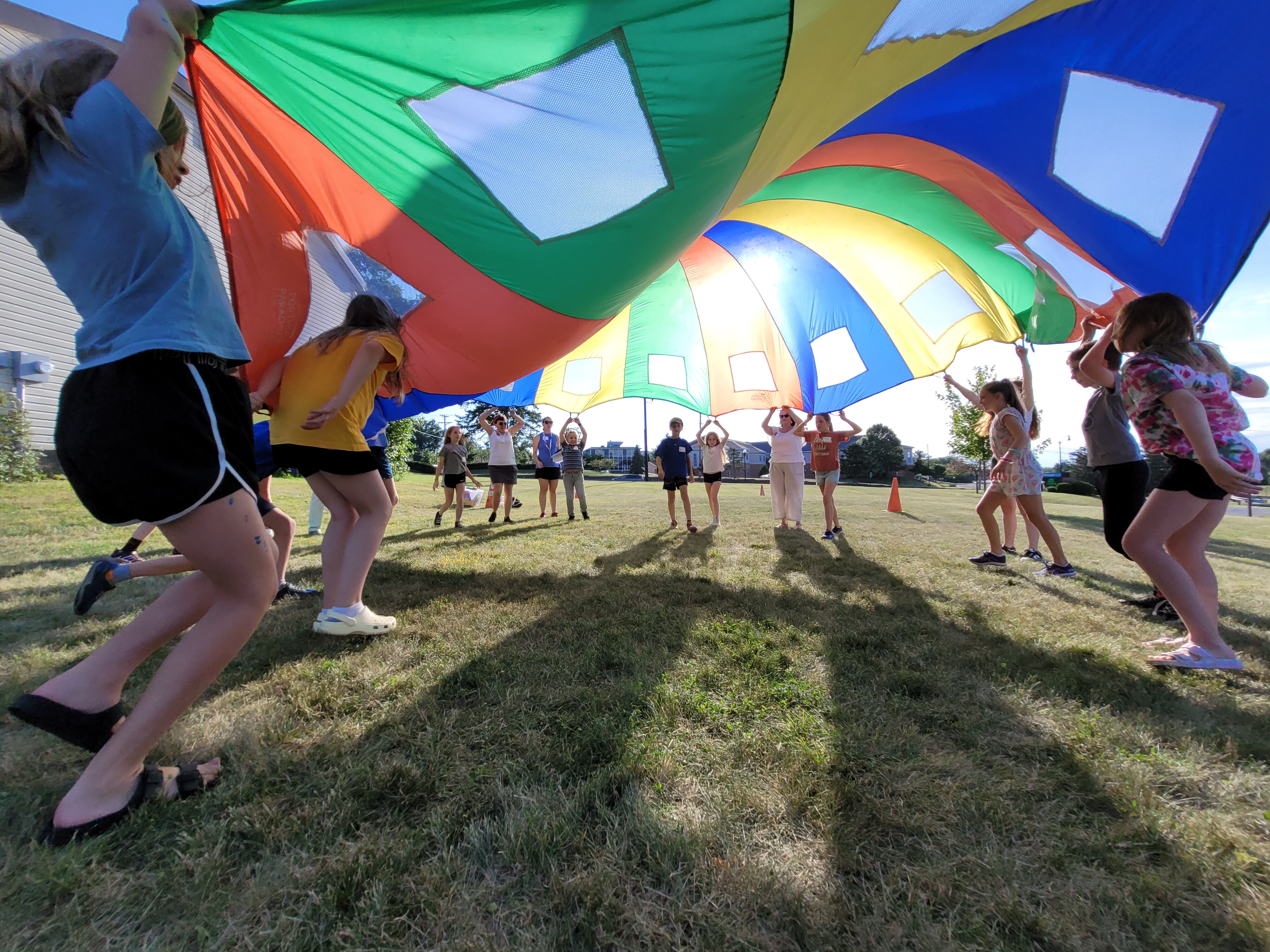The Extra Chair

My first call as solo pastor was to a small congregation in Connecticut. They had been through a congregational split, and then a period of shrinking. They honestly thought their congregation was going to close their doors. But they called me, and together we worked on our welcome. Honestly, we had a lot of capacity for new people – plenty of empty pews, room for new ideas, ready to welcome people into serving and leading, without a lot of hoops. One new parishioner put it this way: “I’d visited other Lutheran congregations and even joined another one. But they already had people doing what I do: someone playing the flute in worship, a full complement of people serving in their food pantry; they didn’t seem to need me, so we didn’t stay.”
That congregation grew over my first 2.5 years, and on any given Sunday, one-third of the congregation was new. People were great at welcoming visitors in the sanctuary – they introduced themselves before worship to people who looked new. The peace was like intermission while everyone passed the peace with everyone else.
But coffee hour after church was another matter. It was in the basement of the church, and all the old members headed down there after worship. They loved to cook and eat, so this wasn’t just a cup of coffee with a donut hole. This was a full-on lunch. People sat down at tables and piled up a plate and had a big ol’ time. And it was great – unless you were new, because if you came downstairs, the members sat down at tables with all their friends while the new people wondered where to sit.
Today is Trinity Sunday, when we lift up the relationship between the three persons of the Trinity. It took over three centuries for the church to figure out how to speak about this mystery of One God in three equal persons, but today I would like to talk about one aspect of the Trinity – that the Trinity is a community. You get a taste of why Christians speak of God in this way in our scriptures for today: Proverbs speaks of Lady Wisdom as a partner with God in creating the world and enlightening humankind; St. Paul notes that God’s love is expressed both through Jesus and the Holy Spirit. And in the Gospel of John, Jesus calls God the Father and declares the mutual, sharing relationship of the three persons, saying, “All that the Father has is mine… [the Spirit] will take what is mine and declare it to you.” The early Christians considered the Trinity a community because they experienced love within Godself – like a parent loving a child; like three friends who rely on each other; like the spirit of love that lives in your heart, even after a person is gone.
A centuries-old icon of the Trinity by Andrei Rublev illustrates this idea of community (shown here). The icon portrays the Trinity as three visitors, based on a story in Genesis where Abraham entertains three mysterious guests. Christians looking back at this story saw the Trinity in those three guests. They noted how Abraham and Sarah hastened to welcome and feed those visitors. Theology about God begins with hospitality.
Notice that the visitors are all the same size. This is a unique feature in portraying the Trinity; other portrayals depict the Spirit as a dove – much smaller than Jesus – and oftentimes God is simply a hand pointing from the corner of the canvas. This image is specifically composed to emphasize the equality, mutuality, and interplay between the three persons of the Trinity – the Trinity as a community.
But that is not all. Notice that there is a space at the table: three visitors, one seat left. The message is clear: there is a place for you at the table; a place for you to join in the life of the Trinity, into the work of God. You are welcomed into the life of God. All Christian practice flows from this place of welcome – the Christian life flows from the God the Trinity who has made a place for us, who has welcomed us into the divine life where God breathes new life into us. Our job is to make space for others, to put out an extra chair.
One of our values here at Epiphany is Welcome. Our strategic plan says, “Epiphany strives to have a culture that is inviting and hospitable, accepting and inclusive of all people.” I discovered at my previous church that welcoming is more than greeting people. It is actually making sure that you have made space for them in practical ways: putting out an extra chair and inviting people to join you.
I once read a church growth book that said that if you regularly have more than 80% of your sanctuary full on a Sunday morning, it’s as if you’ve put up a “No Vacancy” sign. People sense that there isn’t room for them, and they stop coming.
I think the same can be true about other aspects of church life. We say we want more people to join us in our small group or serving ministry, but if we only meet during the day, most working people won’t be able to join. If we think only about our convenience when designing our website, we miss out on providing the necessary information that every visitor needs to know. If we don’t provide childcare, it’s hard to welcome families. If we don’t consider how hard it is to know what’s going on in worship if you have never been a part of a church before, and if we don’t have a way to worship that is simple and instructional, not many of the 50% of adults who have no church background will join us. We’ll chalk it up to lack of interest, when really it is lack of our initiative in figuring out what invisible barriers we have put up that say, “No Vacancy.”
Back at the little Connecticut church, I met a visitor who came from a church that was only 15 years old. Their most important job as they understood it was to reach new people: everyone in their church was a part of a small group, and once a group grew to 14 people, they divided into two groups. That way they always had room for more people. They always had an extra chair.
I am inspired on this Trinity Sunday to think with you about the ministries of which you are a part; to examine what we do one Sunday morning; to learn from those who walk through our doors, asking not only, “Are you new around here?” but also, “What are you looking for in a church?” and, “How can we help?” The God who shares love and relationship in the Trinity calls us to share that same love and relationship with others in practical and spiritual ways. How can you put out an extra chair?




Login To Leave Comment